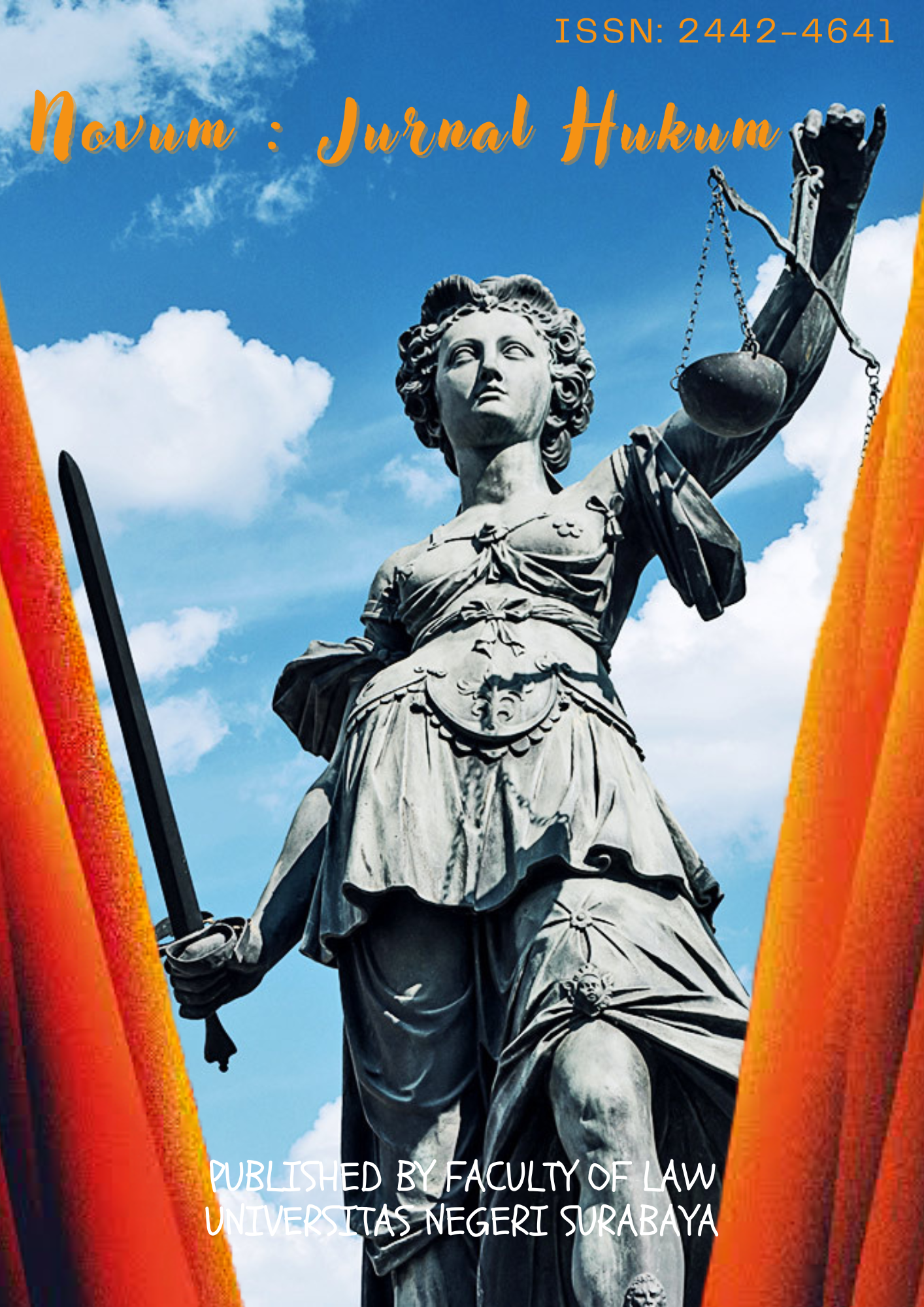The Dynamics of The Job Creation Law (Case Study of The Constitutional Court’s Decision Number 91/PUU-XVIII/2020 on The Formal Test Against Law Number 11 Of 2020 on Job Creation)
DOI:
https://doi.org/10.2674/novum.v2i2.54219Abstract
Law Number 11 of 2020 concerning Job Creation (hereinafter referred to as the Omnibus Law) was enacted and signed by the President on November 2, 2020. The Omnibus Law aims to reform regulations by simplifying the legal framework to address the lack of synchronization among various laws and regulations, as well as eliminating overlapping rules that are considered to hinder the government's objectives. Constitutional Court Decision Number: 91/PUU-XVIII/2020 on the Formal Review of the Job Creation Law, issued by the Constitutional Court on November 4, 2021, granted the petitioner's request for a formal review of the Omnibus Law. On December 30, 2022, the Government issued Government Regulation in Lieu of Law (Perppu) No. 2 of 2022 on Job Creation as a follow-up to Constitutional Court Decision Number: 91/PUU-XVIII/2020. The research conducted in this study is normative, analyzing the judges' considerations in Constitutional Court Decision Number: 91/PUU-XVIII/2020, with a focus on the ambiguity/difference in interpretation among the nine judges regarding Law No. 12 of 2011 and the fulfillment of the urgency element in Perppu No. 2 of 2022. The author adopts a legal and case-based approach and utilizes primary and secondary legal sources to analyze the issues. The author employs a prescriptive method of analysis. In the decision, the judges did not consider the substantive principles of legislation and found that the element of urgent necessity, which compelled the issuance of the Job Creation Perppu, was not fulfilled.
Downloads
Downloads
Published
Issue
Section
License
Copyright (c) 2024 Deva Mahendra Caesar Bimantya, Muh. Ali Masnun

This work is licensed under a Creative Commons Attribution-NonCommercial-ShareAlike 4.0 International License.
 Abstract views: 409
,
Abstract views: 409
, PDF Downloads: 3
PDF Downloads: 3



